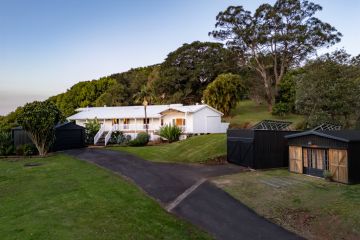Downsizing decisions: Which type of home is best for low-maintenance living?
Downsizers have become a major force in the real estate market, with the combination of an ageing population and peaking property prices leading many empty-nesters to trade their properties for homes better suited to a low-maintenance lifestyle.
Since July 1, government incentives have allowed eligible home owners over 65 to contribute up to $300,000 from the sale of their home to their superannuation, allowing them to take advantage of significant tax savings.
For buyers seeking a low-maintenance lifestyle, not just any small home will do, and some properties are more suitable than others.
Which type of property is best?
Single-storey villas are the most sought-after properties for downsizers, according to founder of Property Mavens Miriam Sandkuhler.
These compact properties are easier to maintain, and the walk-up entry and single-storey layout makes a villa an ideal property to transition to from a house.
A villa can prove a better investment than buying into a retirement village, while providing the same community feel.

An expansive deck at this villa proves low-maintenance living doesn’t mean giving up outdoor areas. Photo: Supplied
Ms Sandkuhler said while townhouses offered a low-maintenance lifestyle, and are often found in desirable locations, the fact that rooms are spread over two to three levels can mean the property won’t be suitable in the long term.
“It absolutely has to be single level because as people age, they’re susceptible to falling,” she said. “Stairs, literally, are a killer.”
- Related: Why you should plan for retirement even if you’re young
- Related: The wealth-building strategy that’s not for everyone
- Related: The must-have features in an off-the-plan apartment
Large three-bedroom apartments can provide enough space for those moving from a big family home. But for these properties to appeal, ample storage and secure parking are essential, according to Ms Sandkuhler.
Buyer’s agent Janet Kayes said while apartments required less maintenance, strata fees could be more expensive than the cost of outsourcing tasks in a house, such as gardening.
“If you go into an apartment, you’ll probably be up for $10,000 in levies [a year] at least,” she said. “But how much will it costs you a year for a gardener? Probably half that.”

Outsourcing maintenance of the family home can be cheaper than paying strata fees in an apartment. Photo: iStock
Owners of apartments may also be forced to pay special levies for unexpected significant repairs such as lifts or roofs, which can erode retirement finances.
While villas are normally strata-titled, fees are usually low as there are few common areas or expensive pieces of equipment to maintain. Some villas are torrens-titled and have no ongoing fees.
Ms Sandkuhler said “a small house that has a very small yard or courtyard to care for” could provide a happy medium for downsizers, provided it was positioned in a desirable area.
Location most important
Moving to a new area at the same time as downsizing can be risky, according to Ms Kayes. She said buyers often find a new suburb doesn’t stack up to their expectations, which can be problematic for those who regret their purchase.
“They come back and want to buy back in the area they used to be in, but the market has moved,” she said.

Downsizers wanting to remain in their area can mean competing with first-home buyers for affordable properties. Photo: iStock
Ms Sandkuhler said properties should be ideally situated close to doctors, chemists, public transport, existing social networks and family.
She said the key for downsizers was finding their ideal home in their current area, but she said suitable properties may see significant competition, as first-home buyers and downsizers may be vying for the same type of property.
“[Downsizers are] mostly committed to the area because they may have been there for decades,” she said. “That’s why they’re often prepared to pay a premium.”
Do you really need to downsize?
Swapping a large family home for a smaller property can be a way to free up funds for retirement, especially for those with relatively low superannuation balances, according to Ms Kayes.
“Their house has become valuable, and they might be asset-rich but cash-poor,” she said. “They feel they need to sell their house because otherwise they would have to live off the pension.”
Ms Sandkuhler said the attachment many people have to their homes can make the process challenging.
“If you’ve been in your own home for a long time but you’d prefer not to move, but if you simply can’t maintain it, it’s really emotionally difficult,” she said.

Living in a compact property doesn’t have to mean giving up on a garden. Photo: Supplied
But buyers who feel they are forced to downsize to fund their retirement may have been given an opportunity to age in their own home, with measures outlined in the federal budget allowing all home owners over 65 to access equity in their homes.
This would allow home owners to access up to $11,799 per year from the equity of their homes, reducing the need to sell up to fund retirement.
Ms Kayes said older home owners shouldn’t feel pressured to downsize just because their children have moved away. “If they can stay in their own environment and have as much support as possible, I’d recommend that,” she said.
We recommend
States
Capital Cities
Capital Cities - Rentals
Popular Areas
Allhomes
More







